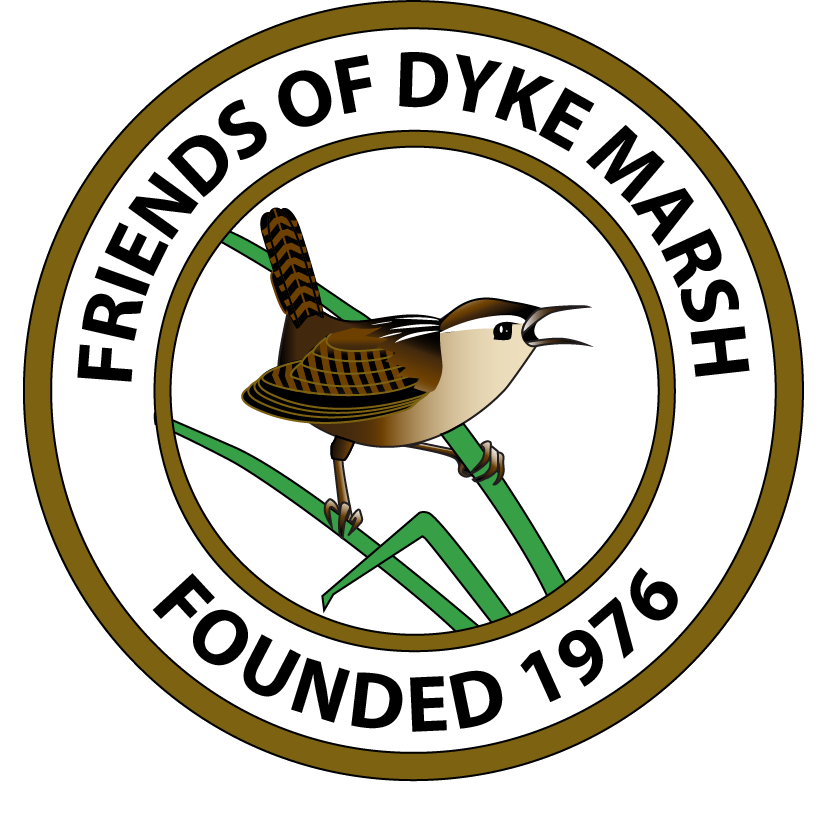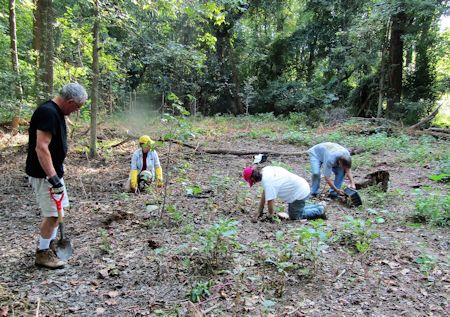On October 4, 2018, ten dedicated FODM volunteers and National Park Service staffers put in another 400 or so plants in our native plant demonstration area along the west side of the Haul Road trail, bringing our total plantings this year to around 3,500. Despite the oppressive heat and a “healthy population” of mosquitoes, “It was a true labor of love,” said Ned Stone, FODM Vice President.
This was the last planting for 2018 to restore degraded habitat and support wildlife by planting native plants in an area formerly overrun with non-native plants. Our partners are the National Park Service, Earth Sangha and the Audubon Society of Northern Virginia. Our efforts are also supported by grants from the National Environmental Education Foundation and the I-495/95 Express Lanes. FODM thanks all of our volunteers and supporters of this project. We are eager to see what spring 2019 brings.
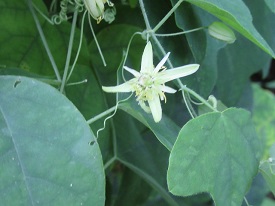 A very welcomed surprise was the return of the yellow passion flower (Passiflora lutea) from the seed bank. Photo by Glenda Booth A very welcomed surprise was the return of the yellow passion flower (Passiflora lutea) from the seed bank. Photo by Glenda Booth |
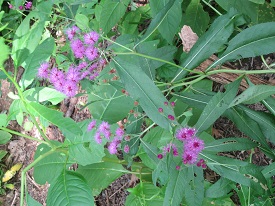 The ironweed (Vernonia gigantea) that we planted was doing well in the early fall. Photo by Glenda Booth The ironweed (Vernonia gigantea) that we planted was doing well in the early fall. Photo by Glenda Booth |
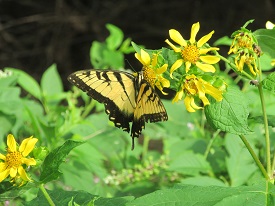 An eastern tiger swallowtail butterfly (Pterourus glucus) nectars on a bear's foot/hairy leafcup (Smallanthus uvedalius) plant. Photo by Glenda Booth An eastern tiger swallowtail butterfly (Pterourus glucus) nectars on a bear's foot/hairy leafcup (Smallanthus uvedalius) plant. Photo by Glenda Booth |
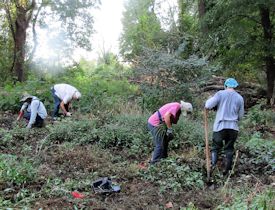 Volunteers helped to restore a degraded area with native plants. Photo by Ned Stone Volunteers helped to restore a degraded area with native plants. Photo by Ned Stone |
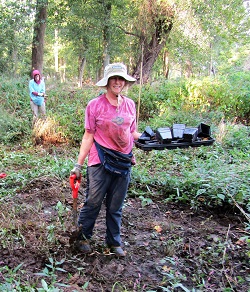 FODM Board member Trudi Hahn is a dedicated volunteer. Photo by Ned Stone FODM Board member Trudi Hahn is a dedicated volunteer. Photo by Ned Stone |
